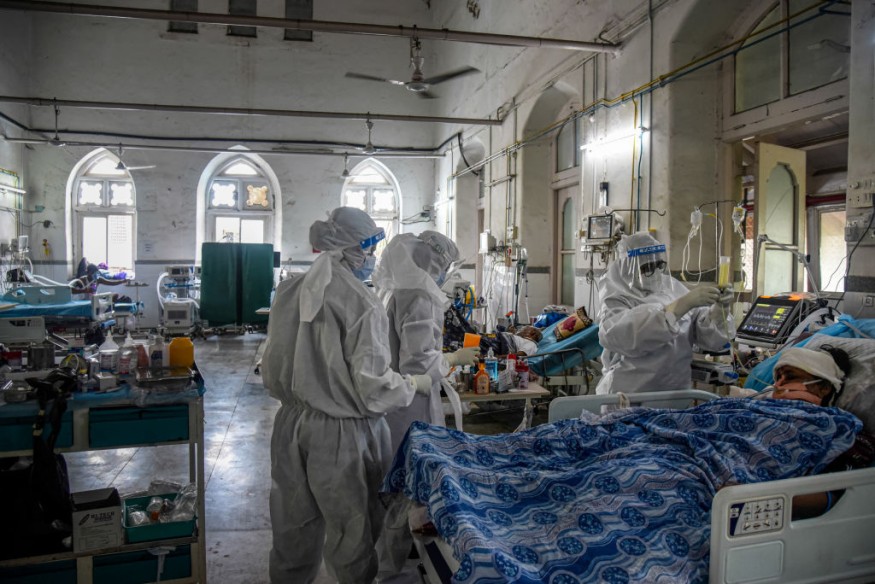In 2020, health experts in New York City, the epicenter of the pandemic in the United States at that time, noticed that a substantial number of COVID-19 people admitted at the hospital had high levels of sugar in their blood, a condition also known as hyperglycemia, a signature feature of diabetes.
Shuibing Chen, a stem cell biologist, and her colleagues at Weill Cornell Medicine found it challenging to control the blood sugar level of some COVID-19 patients, even those who had no history of diabetes, according to a National Geographic report.
What was more surprising, she said, was that some of the patients who did not have diabetes before they contracted COVID-19 developed new-onset diabetes following recovery from COVID infection.
The COVID-19 virus is known for attacking the lungs and causing acute respiratory distress. However, why a COVID-19 patient would suddenly develop a chronic illness like diabetes remains a mystery.
Read also: Operation Warp Speed: Pfizer Seeks FDA Emergency Approval to 20 Million COVID-19 Vaccine for US

Likely to Develop Diabetes
A global analysis conducted in 2020 and led by Thirunavukkarasu Sathish, a population health researcher at Canada-based McMaster University, found that almost 15 percent of patients with severe COVID-19 infection also developed diabetes. Sathish said the figure is likely to increase among high-risk individuals, for example, those with preexisting diabetes.
Another research published in 2021 shows that of 551 patients hospitalized for COVID-19 in Italy, nearly half became hyperglycemic or with high levels of blood sugar, an indicator of diabetes. The study was led by endocrinologist Paolo Fiorina of Harvard Medical School.
Peter Jackson, a biochemist at the Stanford University School of Medicine, believes "as many as 30 percent of patients" who had severe COVID-19 are likely to develop diabetes.
Intrigued by the link between COVID-19 and diabetes, both Chen and Jackson conducted independent studies that show how COVID-19 infection might trigger hyperglycemia.
Both studies provide critical insights into the underlying mechanisms by which COVID-19 can led to the development of new-onset diabetes in patients infected with the virus, said Rita Kalyani, associate professor of medicine at the Division of Endocrinology, Diabetes, and Metabolism, Johns Hopkins. She was not part of the two studies.
Pancreas, Another COVID-19 Target
COVID-19 affects people in different ways. Many experience minor symptoms while others develop severe, life-threatening illnesses.
COVID-19 could spread outside the lungs and damage other critical organs such as the heart, kidneys, and liver. Diabetes and obesity are common risk factors for severe infection of COVID-19.
In previous research, Chen's team grew different types of tissues in the laboratory and tested which ones were susceptible to the virus. She found that beta cells in the pancreas are highly susceptible to COVID-19 infection.
The pancreas, an organ that helps in digestion, comprises of numerous cell types. It contains beta cells that make insulin, the hormone escorting sugar molecules from the blood into the cells of the body where it is used for energy.
Disabling Insulin Production
Both studies showed that beta cells stop producing insulin when infected with SARS-Cov-2, the coronavirus type that causes COVID-19.
In Jackson's research, the infected beta cells died through apoptosis, a genetically programmed autodestruct sequence that injured cells initiate.
Meanwhile, Chen's team found that infected beta cells went through a process known as "transdifferentiation" -- they transformed into another cell type, one that no longer produces insulin.
Both studies came out with the same result: when the virus attacks the pancreatic beta cells, there is a decrease in insulin production, a condition that can lead to diabetes.
A compound identified as Integrated Stress Response InhiBitor or trans-ISRIB helped beta cells keep their identity as well as their ability to produce insulin when infected with COVID-19.
trans-ISRIB, as explained by Tocris Bioscience, is a compound detected in 2013 that can prevent the normal response of a cell to stress. Such compounds are currently being studied in the search for potential therapeutics in the prevention and treatment of apoptosis.
Related information about the link between COVID-19 and Diabetes is shown on NDTV's YouTubd video below:
Check out more news and information on COVID-19 on Science Times.
© 2026 ScienceTimes.com All rights reserved. Do not reproduce without permission. The window to the world of Science Times.











